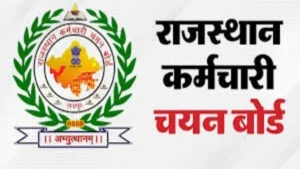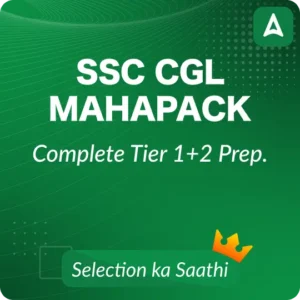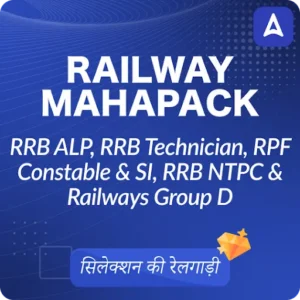The objective of this SOP is to establish a secure, transparent, and standardised process for the printing, distribution, usage, collection, and evaluation of Question Papers and Optical Mark Recognition (OMR) sheets during recruitment examinations. By implementing these procedures, examination authorities can ensure accuracy, integrity, and fairness in the assessment process.
Standard Operating Procedure (SOP) for Recruitment Examinations
Pre-Examination Procedures
1.1 Question Paper Preparation
- Each question paper must be stapled twice on the left-hand side and sealed on the right-hand side.
- Only qualified subject experts with impeccable credentials should prepare the question papers. Strict confidentiality must be maintained.
- Finalised question papers and answer keys should be sealed in separate envelopes after randomisation into multiple sets.
1.2 Printing & Security Protocol
- Printing should be conducted in a trusted government-approved press under physical supervision of senior officials (OAS, Police, and Department officers).
- For police recruitment exams, a senior IPS officer (IG rank or above) must be present.
- All leftover material and cuttings must be destroyed immediately under supervision.
- Question papers should be printed on 75 GSM or higher quality paper, with centre-specific barcoding.
1.3 OMR Sheet Standards
- OMR sheets must carry unique barcodes/serial numbers for each candidate.
- Pre-printed fields should include Roll No., Subject Code, Exam Date, etc.
- Sheets must be compatible with ballpoint pens or other approved markers.
- Question papers and OMR sheets must be packed together securely.
1.4 Storage & Dispatch
- Before dispatch, all materials must be stored in a Government Treasury.
- Secure, centre-wise packaging must ensure tamper-proof delivery to exam centres in time, minimising the risk of manipulation.
2. Examination Centre Protocols
2.1 Selection & Staffing
- Exams must not be outsourced to unreliable agencies. The conducting body should retain full control.
- Each exam centre must be staffed with adequately trained personnel.
2.2 Security & Transparency
- Question paper packets should be delivered under government official supervision.
- Videography of packet opening is mandatory.
- CCTV surveillance should be installed and monitored by police officials, with live feeds shared with NIC/OCAC for auditing.
2.3 Infrastructure & Logistics
- OMR answer sheets must be packed in tamper-proof, waterproof envelopes.
- Random selection and rotation of centres should be enforced to reduce risks of malpractice.
- Attendance sheets, labels, and other logistical material must be provided in advance for smooth handling.
3. Post-Examination Procedures
- OMR sheets must be packed under the supervision of Government Officials and handed over to district authorities.
- Scanning of OMR sheets must be conducted only in government premises under the supervision of at least three senior officials from different departments.
- Scanning equipment should not be removed until all formalities are completed.
4. Digital & Online Examination Security
4.1 Pre-Exam
- Biometric & MFA verification (e.g., OTP, fingerprint, facial recognition) to prevent impersonation.
- Candidates must test technical equipment and sit in distraction-free rooms.
- Platforms should employ robust encryption to secure exam data.
4.2 During Exam
- AI-powered and human proctoring should monitor candidates.
Lockdown browsers must prevent switching between applications. - Dynamic question generation ensures each candidate receives a unique sequence.
- Strict time limits should be enforced.
- For low-connectivity areas, image proctoring should capture candidate photos periodically.
4.3 Post-Exam
- Use plagiarism detection for written responses.
- All data (video, logs, results) must be encrypted to prevent breaches.
- Suspicious activities flagged by proctoring systems must be reviewed.
5. Infrastructure & Long-Term Measures
- Government should establish exclusive examination centres in universities, colleges, or dedicated facilities, equipped with integrated CCTV linked to a Command Control Centre (ICCC).
- A high-security government printing press should be developed to handle sensitive exam material.
- Outsourcing of exam processes should be strictly prohibited.
- Adequate police deployment must be ensured to maintain discipline at centres.
- After each examination, an ICCC report should be prepared and reviewed.
Conclusion
By rigorously following this SOP, recruitment examinations can be conducted with maximum transparency, security, and fairness. These measures protect against malpractice, safeguard sensitive exam materials, and enhance public trust in the recruitment process.



 UP Police Constable Exam Date 2026 Out F...
UP Police Constable Exam Date 2026 Out F...
 RSSB Mahila Supervisor Recruitment 2026 ...
RSSB Mahila Supervisor Recruitment 2026 ...
 West Bengal NHM CHO Eligibility Criteria...
West Bengal NHM CHO Eligibility Criteria...




 Adda247 Job portal has complete information about all Sarkari Jobs and Naukri Alerts, its latest recruitment notifications, from all state and national level jobs and their updates.
Adda247 Job portal has complete information about all Sarkari Jobs and Naukri Alerts, its latest recruitment notifications, from all state and national level jobs and their updates.




